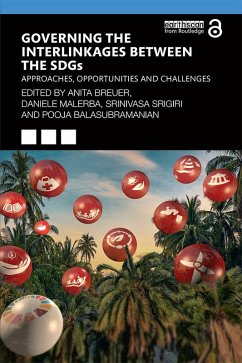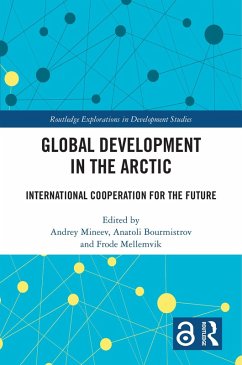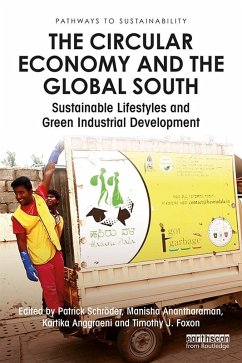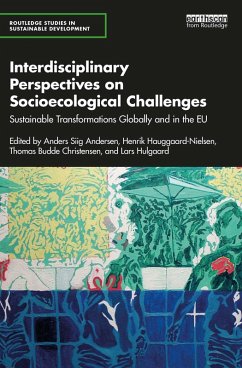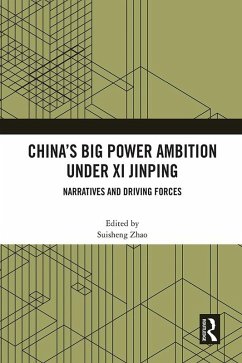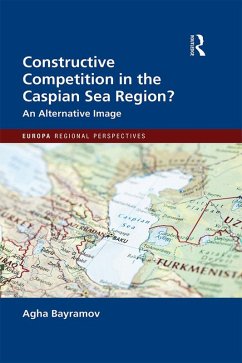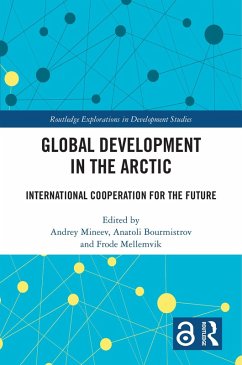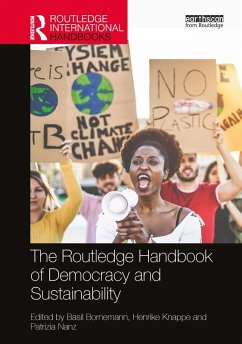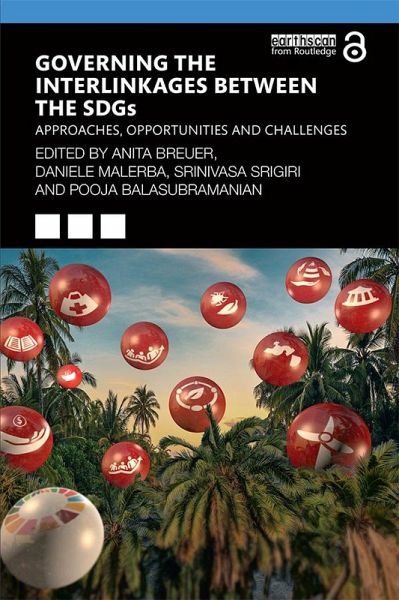
Governing the Interlinkages between the SDGs (eBook, PDF)
Approaches, Opportunities and Challenges
Redaktion: Breuer, Anita; Balasubramanian, Pooja; Srigiri, Srinivasa; Malerba, Daniele
Versandkostenfrei!
Sofort per Download lieferbar
0,00 €
inkl. MwSt.
Weitere Ausgaben:

PAYBACK Punkte
0 °P sammeln!
Governing the Interlinkages between the SDGs: Approaches, Opportunities and Challenges identifies the institutional processes, governance mechanisms and policy mixes that are conducive to devising strategies of integrated Sustainable Development Goal (SDG) implementation.The book edited by Anita Breuer, Daniele Malerba, Srinivasa Srigiri and Pooja Balasubramanian examines the dedicated policies targeting the SDGs, as well as political and institutional drivers of synergies and trade-offs between the SDGs in selected key areas - both cross-nationally and in specific country contexts. Their anal...
Governing the Interlinkages between the SDGs: Approaches, Opportunities and Challenges identifies the institutional processes, governance mechanisms and policy mixes that are conducive to devising strategies of integrated Sustainable Development Goal (SDG) implementation.
The book edited by Anita Breuer, Daniele Malerba, Srinivasa Srigiri and Pooja Balasubramanian examines the dedicated policies targeting the SDGs, as well as political and institutional drivers of synergies and trade-offs between the SDGs in selected key areas - both cross-nationally and in specific country contexts. Their analysis moves beyond the focus on links between SDG indicators and targets. Instead, the book takes advantage of recent evidence from the initial implementation phase of the SDGs and each chapter explores the question of which political-institutional prerequisites, governance mechanisms and policy instruments are suited to accelerate the implementation of the SDGs. The findings presented are intended to both inform high-level policy debates and to provide orientation for practitioners working on development cooperation.
This volume will be of great interest to practitioners and policy makers in the field of sustainable development, as well as academics in the fields of sustainability research, political science, and economics.
A PDF version of this book is available for free in Open Access at www.taylorfrancis.com. It has been made available under a Creative Commons BY license
The book edited by Anita Breuer, Daniele Malerba, Srinivasa Srigiri and Pooja Balasubramanian examines the dedicated policies targeting the SDGs, as well as political and institutional drivers of synergies and trade-offs between the SDGs in selected key areas - both cross-nationally and in specific country contexts. Their analysis moves beyond the focus on links between SDG indicators and targets. Instead, the book takes advantage of recent evidence from the initial implementation phase of the SDGs and each chapter explores the question of which political-institutional prerequisites, governance mechanisms and policy instruments are suited to accelerate the implementation of the SDGs. The findings presented are intended to both inform high-level policy debates and to provide orientation for practitioners working on development cooperation.
This volume will be of great interest to practitioners and policy makers in the field of sustainable development, as well as academics in the fields of sustainability research, political science, and economics.
A PDF version of this book is available for free in Open Access at www.taylorfrancis.com. It has been made available under a Creative Commons BY license
Dieser Download kann aus rechtlichen Gründen nur mit Rechnungsadresse in A, B, BG, CY, CZ, D, DK, EW, E, FIN, F, GR, HR, H, IRL, I, LT, L, LR, M, NL, PL, P, R, S, SLO, SK ausgeliefert werden.




